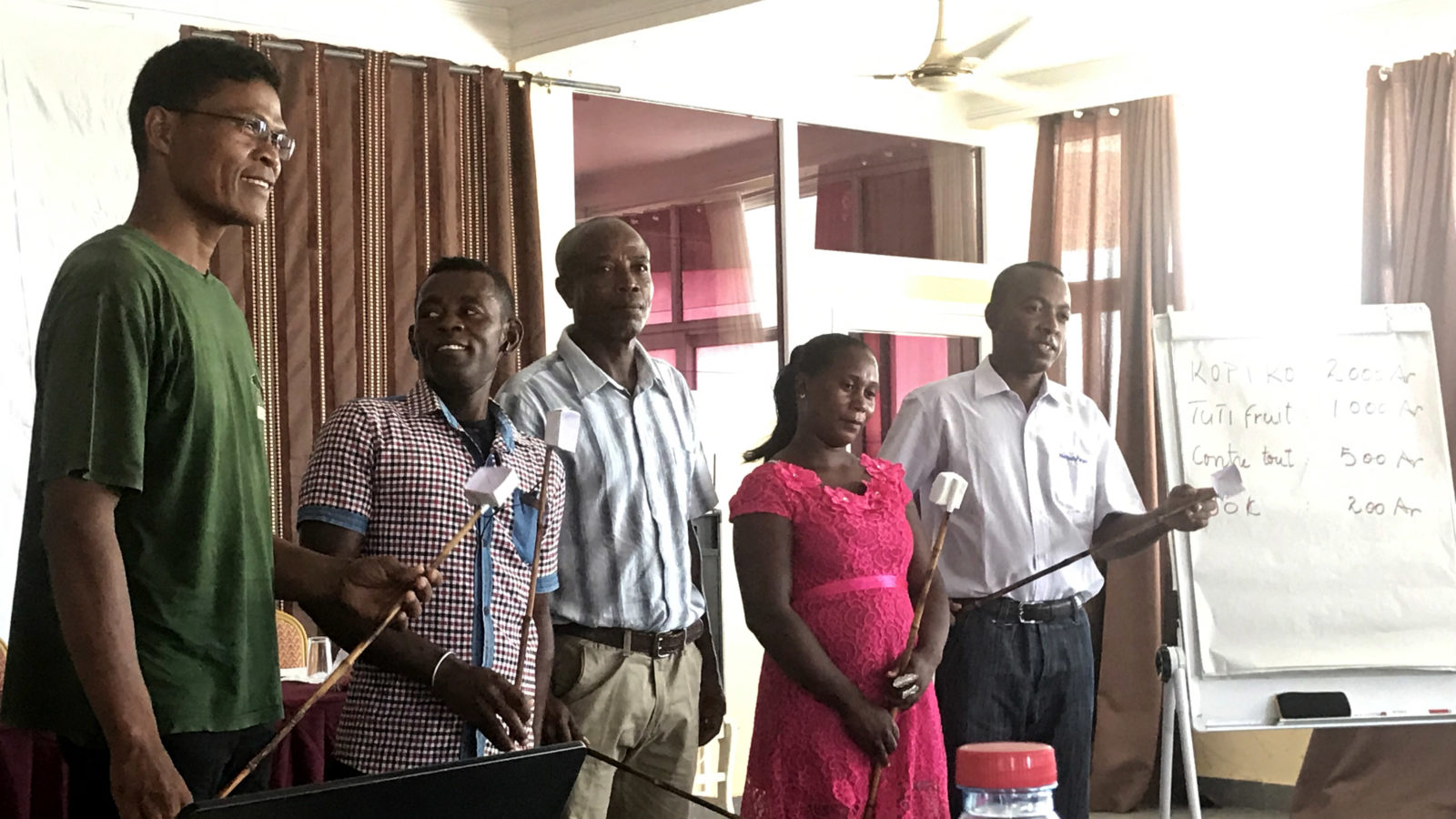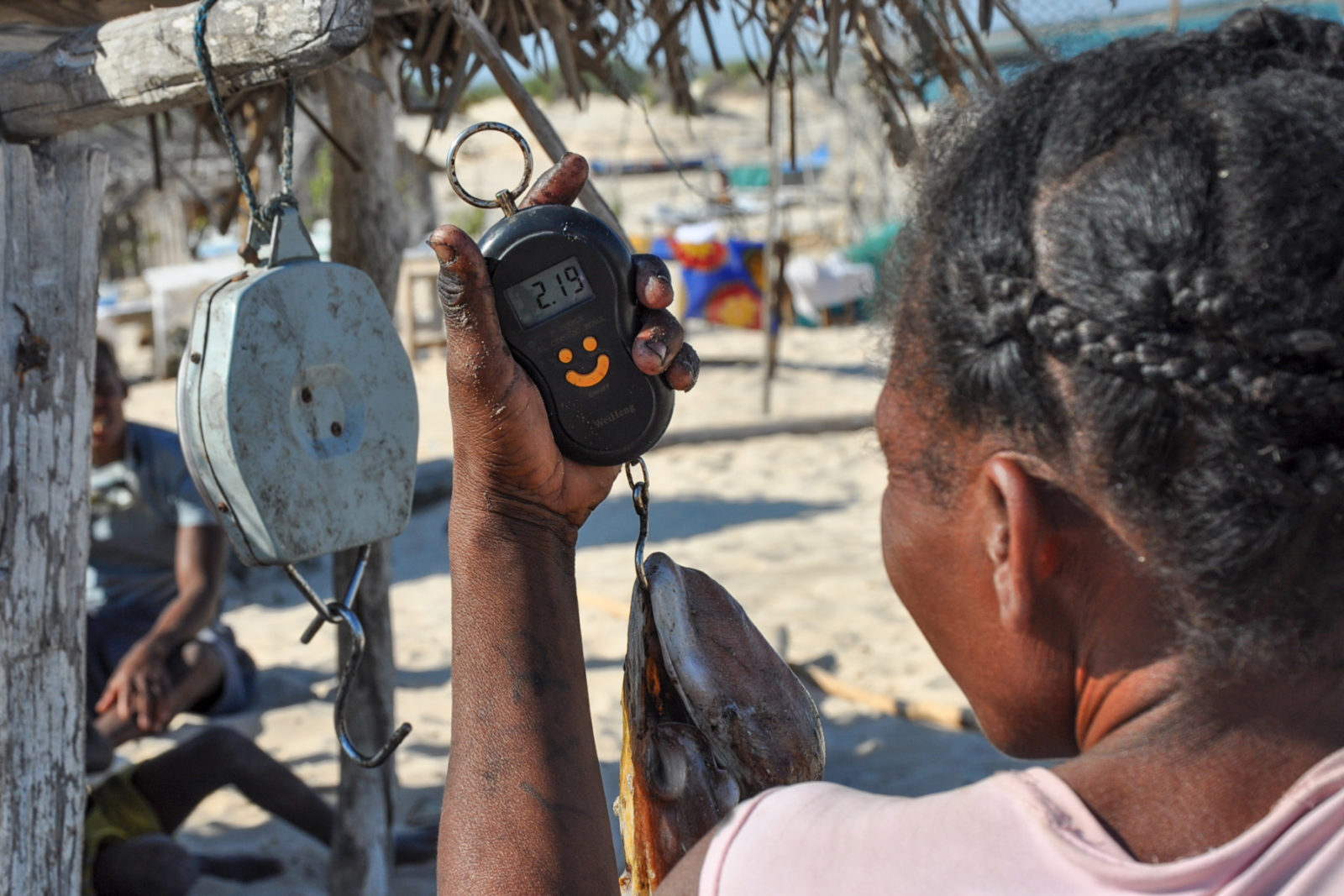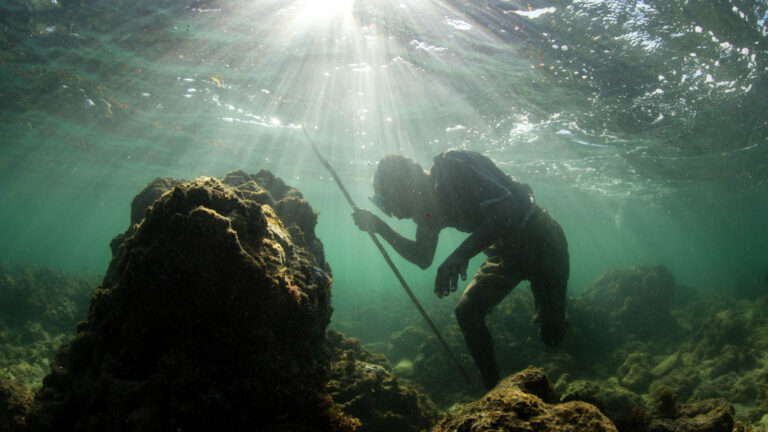Fishers, seafood buyers, conservationists, researchers and policy makers gathered in Toliara to launch a Fishery Improvement Project (FIP) that sets out a long-term vision for improving the sustainability of one of Madagascar’s largest small-scale fisheries.
Octopus is the most economically important export fishery to coastal communities of southwest Madagascar, and forms the backbone of the local seafood processing and exporting economy. The new action plan, launched on 16 January 2019, represents a major change in the management of this vital industry, with fishing communities, processing and export companies, local and national authorities and non-governmental organisations all agreeing to work together to raise sustainability standards across the fishery.
This FIP, representing the first of its kind in Madagascar, is designed to encourage responsible use of the region’s octopus population to meet the requirements of the Marine Stewardship Council’s (MSC) standard for sustainable fisheries. These improvements will help to secure long-term economic benefits for communities and businesses, and access global markets interested in high quality, responsibly sourced octopus.
Octopus is an important species in the Marine Stewardship Council’s global strategy and we recognise the important contribution that this FIP can make to the fisheries of southwest Madagascar and globally. We commend the Ministry of Fisheries, the Regional Direction of Fisheries, octopus processors, fishers and NGOs in undertaking this initiative.
Andrew Gordon, Fisheries Outreach Manager – Marine Stewardship Council, Southern Africa
Renowned for its exceptional marine and coastal biodiversity, southwest Madagascar is also home to a rapidly increasing population, experiencing very high levels of poverty. Coastal communities in the region are highly dependent on marine fisheries for subsistence and income, as well as being extremely vulnerable to the impacts of climate change, and of competition with foreign fishing vessels. In this context, developing sustainable fisheries management has never been more important.
More than half of global fish exports originate in low-income countries, with fisheries being a hugely important source of protein and income for many coastal states. As consumer awareness has risen in recent years, markets in the Global North are increasingly seeking sustainable and responsibly sourced fish. This pressure has boosted demand for eco-certification schemes, like the MSC ecolabel.

Yet despite gaining significant traction in global seafood markets, few fisheries in low-income countries have achieved MSC certification, due to an array of complex challenges. Consequently, many environmental organisations are working with fisheries to improve their management in a process known as a Fishery Improvement Project. The new Madagascar action plan represents the first formal FIP for a small-scale octopus fishery in a low-income country.
As well as being critical for coastal communities throughout much of the western Indian Ocean, octopus fisheries management initiatives in this region have been a driving force behind the establishment of a wave of locally managed marine areas, that in turn have kickstarted a national movement working to empower local communities to manage their own coastal fisheries.
Over the coming months the members of the octopus fishery management committee (Comité de Gestion de la Pêche aux Poulpes, or CGP), including Blue Ventures, will formally launch this FIP to the international fisheries community via Fishery Progress, where we can demonstrate that our work is fully transparent and accountable. We will also be conducting a value chain analysis to identify ways to improve the quality and value of octopus entering the chain, to help ensure that fishers receive more money for their catch.
Jaco Chan Wit Kaye, General Director of the seafood company CopeFrito and CGP member, said, “We are committed to the responsible management of octopus fishing in southwestern Madagascar and we celebrate the launch of this project to improve fishing. It is good for fishers, for the environment and for the supply chain and will ensure a sustainable and high quality product for the present and future generations.”

For more details on this initiative, please contact David Parker, Blue Ventures’ Global Fisheries Improvement Lead [email protected]
We thank Vitol Foundation, Marine Stewardship Council and the MacArthur Foundation for their generosity in supporting this work.
Read about this FIP in the international seafood media: https://blueventures.org/madagascars-first-fisheries-improvement-project-makes-a-splash/
Track the progress of this FIP: https://fisheryprogress.org/fip-profile/southwest-madagascar-octopus-diving-gleaning























